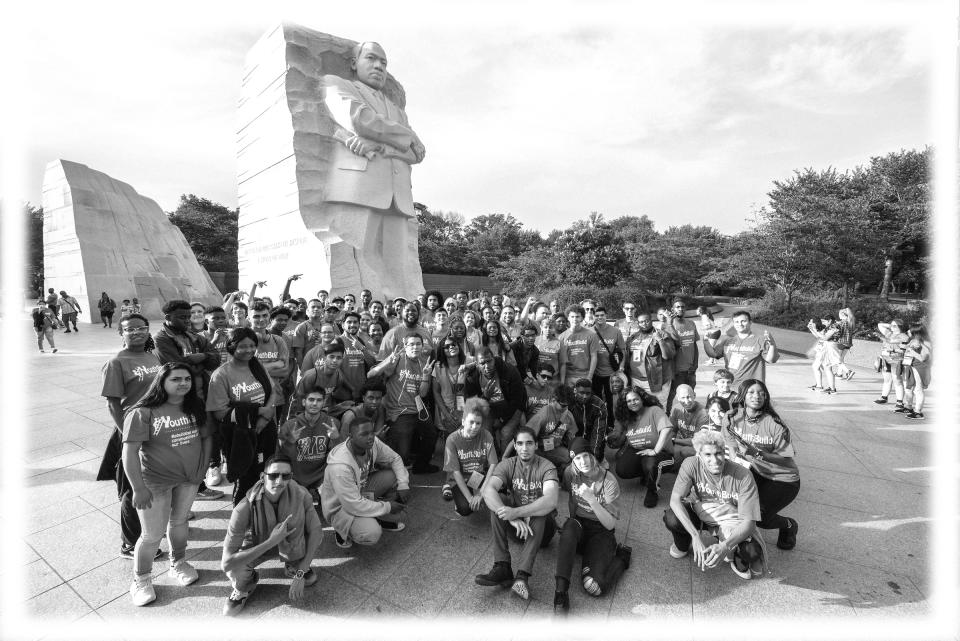Democratic candidates pitch national service programs to help bridge America's political divide
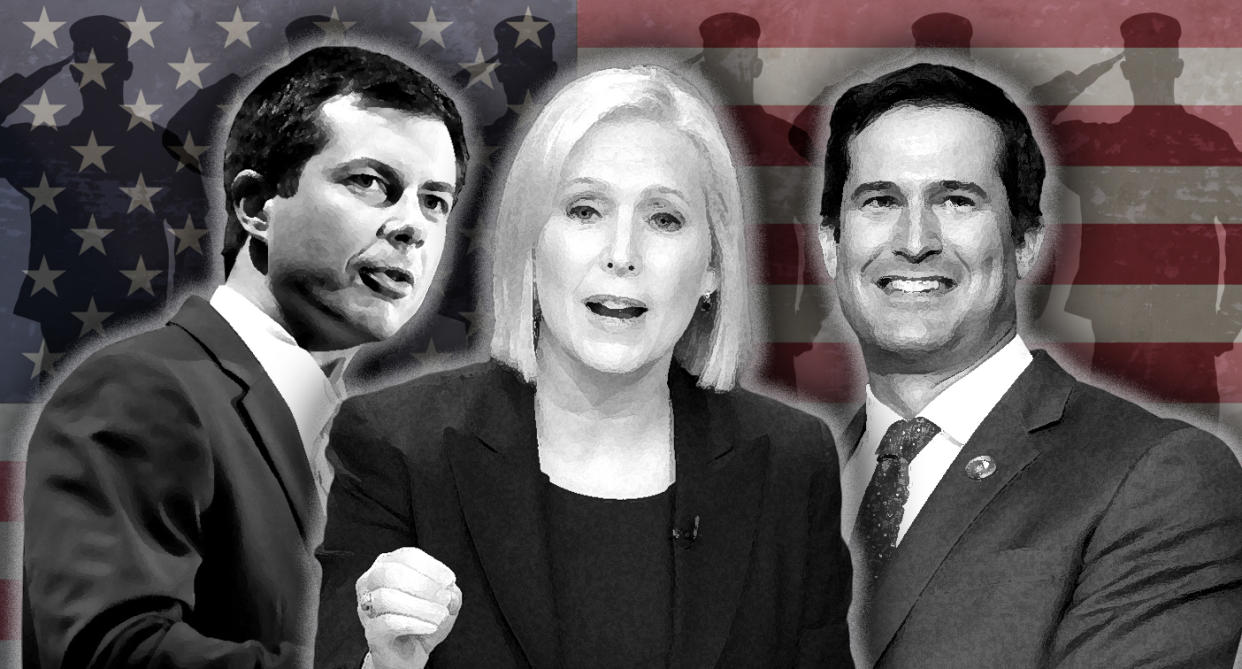
Presidential elections are decided by many things: media exposure, financial backing, personal chemistry, timing and luck. Policy positions often are just a way of signaling where a candidate stands on the political spectrum. But 2020 is shaping up to be different, the most ideas-driven election in recent American history. On the Democratic side, a robust debate about inequality has given rise to ambitious proposals to redress the imbalance in Americans’ economic situations. Candidates are churning out positions on banking regulation, antitrust law and the future effects of artificial intelligence. The Green New Deal is spurring debate on the crucial issue of climate change, which could also play a role in a possible Republican challenge to Donald Trump.
Yahoo News will be examining these and other policy questions in “The Ideas Election” — a series of articles on how candidates are defining and addressing the most important issues facing the United States as it prepares to enter a new decade.

Most of us don’t have to look beyond our own family dinner table to know that as Americans we’ve become deeply divided on politics. One WSJ/NBC poll last year found that 80 percent of Americans believe the nation is “mainly or completely divided.” That rancor has culminated in a political fundamentalism that has led to fresh battles over gun control, immigration, abortion and a host of cultural and social issues.
Might those divisions begin to be reconciled if every young person in America were compelled to participate in a national service program? Could shared responsibility and obligation of the kind that created the Greatest Generation and propelled the U.S. to unforeseen heights be replicated in a draft of social soldiers, fighting for their communities and American ideals?
“Those who serve are more likely to vote, more likely to volunteer and more likely to trust people who are different from themselves,” says Shirley Sagawa, CEO of the Service Year Alliance. “National service can unite our country, and as candidates grapple with how to bring people together, this issue is one they should embrace.”

One of the most indelible and inspiring lines uttered by a U.S. president following the conclusion of World War II came during John F. Kennedy’s inaugural address in 1961: “Ask not what your country can do for you, but what you can do for your country.” Furthering the idea of giving back, Kennedy went on to create the Peace Corps. His successor, President Lyndon B. Johnson, created a domestic service corps called VISTA.
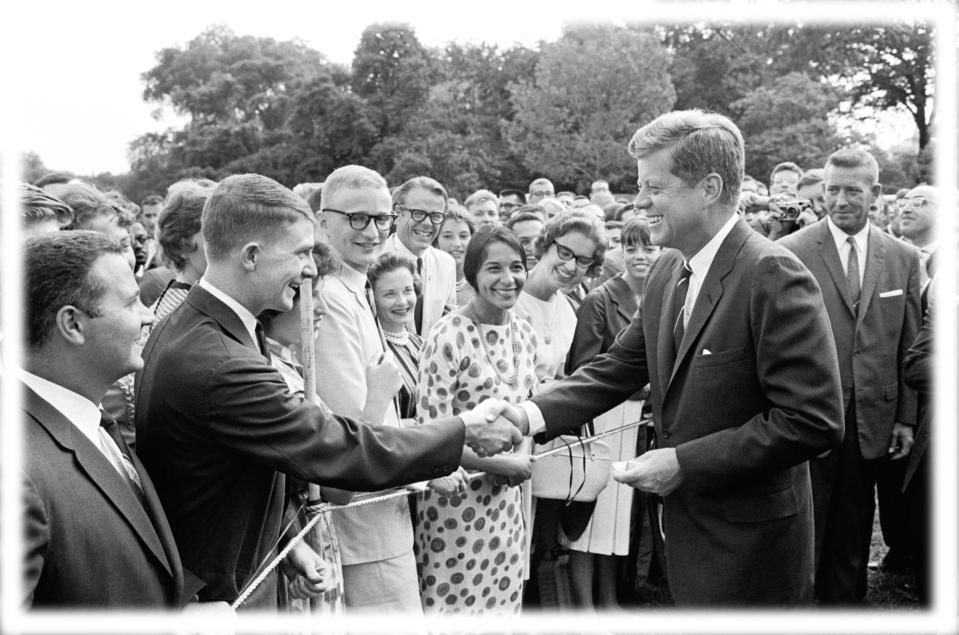
President Bill Clinton continued the tradition, making national service a selling point during his 1992 presidential campaign. He didn’t ultimately get the 800,000-strong Citizens Corps he proposed, but he did successfully launch AmeriCorps in 1993. After the Sept. 11, 2001, terrorist attacks on the United States, President George W. Bush spoke at length about the importance of military and civic volunteering and kept AmeriCorps alive, convincing Congress to boost funding for the organization. But President Obama’s ambitious plans to expand AmeriCorps ran up against resistance from congressional Republicans. President Trump, meanwhile, has attempted to eliminate the Corporation for National and Community Service, which funds AmeriCorps.

South Bend, Ind., Mayor Pete Buttigieg first brought the idea of a national service program to the forefront in April. Responding to a question about how to deal with a polarized political environment, he told MSNBC host Rachel Maddow: "One thing we could do that would change that would be to make it — if not legally obligatory but certainly a social norm — that anybody after they're 18 spends a year in national service.”
On July 3, Buttigieg unveiled a policy proposal with the ambition of creating a culture of service by beefing up current programs and offering competitive grants to locales experimenting with new models of public service. The former Navy reservist’s three-step plan involves expanding the number of available positions in AmeriCorps. His administration would also offer community grants in the hopes of building “ecosystems of service around regional issues.” His vision is that the local and regional service models would eventually be scaled up to offer service opportunities to one million recent graduates.
“Our intention is for this proposal to create a pathway towards a universal, national expectation of service for all 4 million high school graduates every year, such that the first question asked of every college freshman or new hire is: ‘where did you serve?’” Buttigieg says in a statement on the PeteforAmerica website.
Several other Democratic presidential candidates have called for voluntary national service, and many of their proposals take their cues from the G.I. Bill, which rewards military service with money for college or job training.
New York Sen. Kirsten Gillibrand and Massachusetts Rep. Seth Moulton put out detailed national service policy plans early on in their campaigns. Both would appoint a Cabinet-level director of national service to oversee massive programs matching recent high school graduates with expanded service opportunities created by the federal government. Gillibrand envisions a national service program that will carve out a pathway to economic opportunity for the country’s youth.
“Individuals who commit to serve one year of public service would be awarded tax-free financial assistance to attend two years of public or community college tuition-free, and those who serve two years would be able to attend four years free,” Gillibrand wrote in an op-ed on FoxNews.Com. “What better way to counter President Trump’s division than to inspire and enable young people to do good with their lives?”
Moulton, a former Marine, is calling for a national service education guarantee. If he became president he would launch a national recruiting effort for the program in an effort to reach all young Americans (he estimates there are 33.4 million Americans aged 17-24 that might serve). Moulton, along with Washington Gov. Jay Inslee and former Maryland Rep. John Delaney, is calling for a corps that would specifically tackle the challenges of climate change.
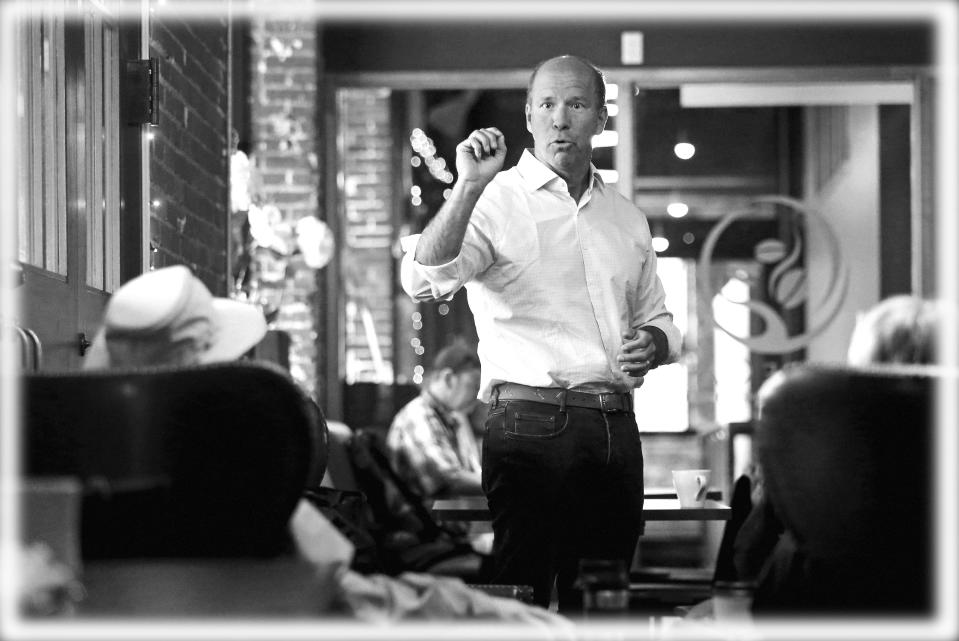
Delaney’s plan would also seek to address the rebuilding of the nation’s decrepit infrastructure. He envisions public-private partnerships to fund paid apprenticeships that would equip recent high school grads with, for example, construction skills to renovate buildings. Delaney would also require that all federal contractors participate in the apprenticeship program.
Massachusetts Sen. Elizabeth Warren’s call for “a 21st century Civilian Conservation Corps” of 10,000 young people harkens back to FDR’s public relief program, which put thousands of Americans to work in the 1930s. Detailing the policy in an article on Medium, Warren wrote that she plans to expand the budget for AmeriCorps and seek public-private partnerships to pay for the new service members, who would help her implement her federal land use and climate change policies.
“This will create job opportunities for thousands of young Americans caring for our natural resources and public lands, deepening their lifelong relationship with the great outdoors,” she writes.

Former U.S. Rep. Charles Rangel pushed a version of a mandatory service proposal in every legislative session from 2003 to 2015. The furthest a bill has ever gotten was a vote on the House floor in 2004, when it was defeated, 402-2. The big problem with his proposal was that it called for mandatory service. Constitutional experts say requiring Americans to work is illegal, and most voters are repelled by the idea, especially the millennials who would be most affected by such a requirement.
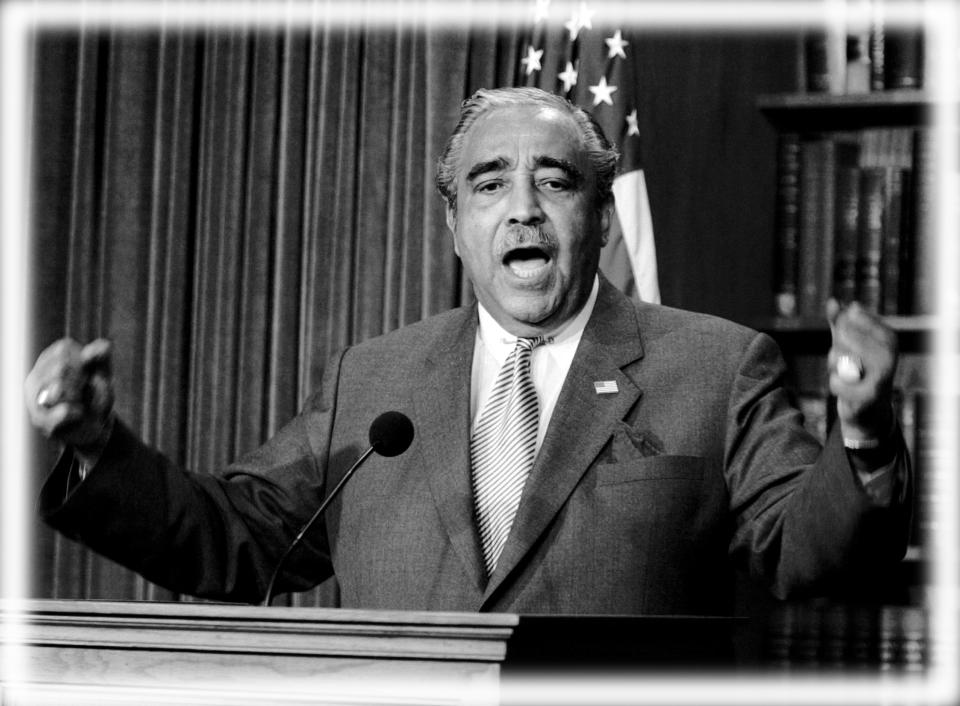
Research by the Serve America Together Campaign shows that 63 percent of voters are in favor of a national service program that gives everyone an opportunity to serve. However, a majority of voters, 71 percent, oppose mandatory national service.
None of the Democratic candidates are calling for mandatory service, but it’s unclear how much political capital any of them would be willing to spend to enact a truly comprehensive national service program.

Read more from Yahoo News:
GOP whip Scalise cites Trump accuser’s ‘bizarre’ CNN interview in doubting her account
Pentagon secretly struck back against Iranian cyberspies targeting U.S. ships
'Great Replacement' ideology is spreading hate in U.S. and across the globe
How Europe's smallest nations are battling Russia's cyberattacks



